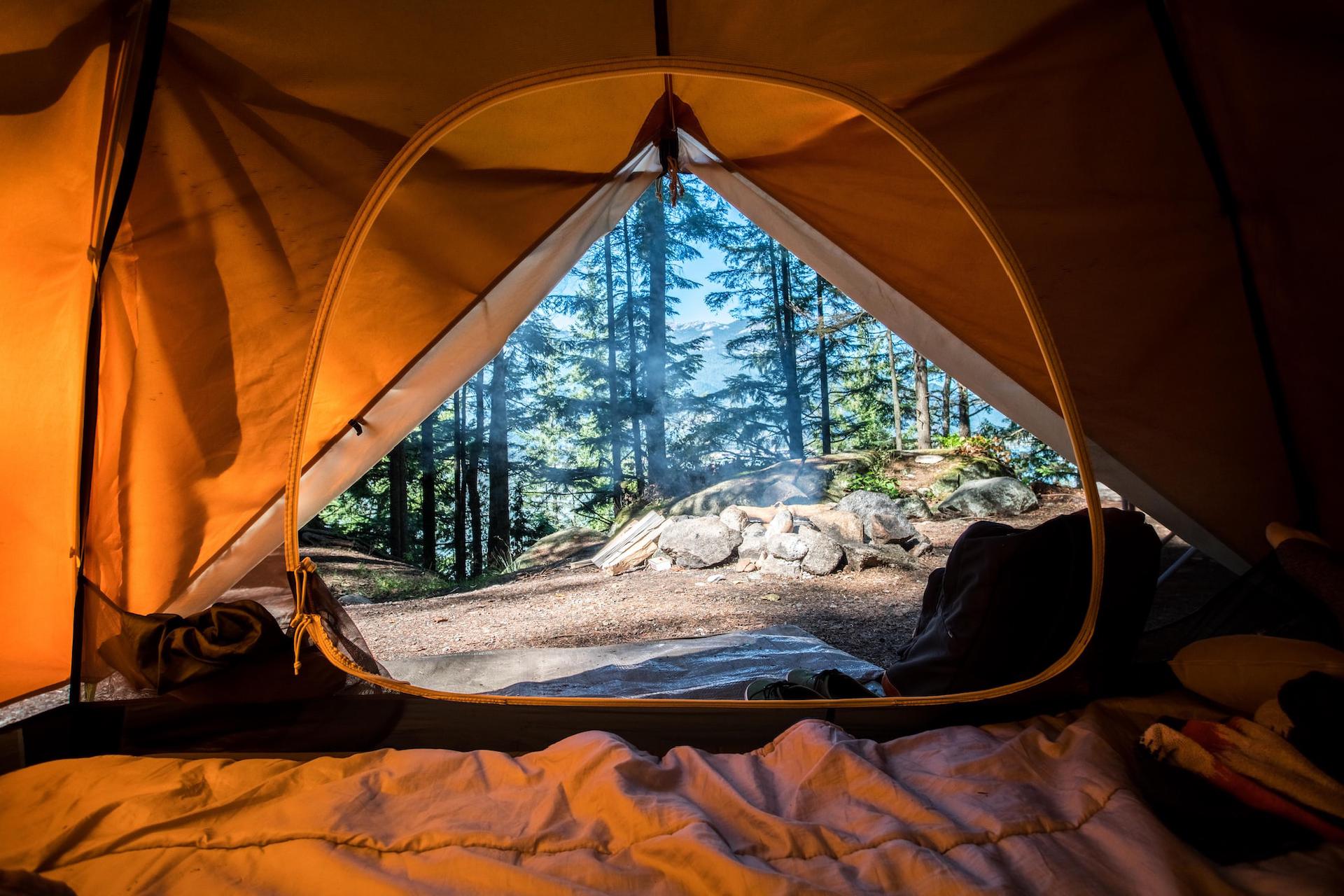What to Look For When Tent Shopping

When it comes to camping at a lake, choosing the right tent is crucial. Not only does a tent provide a comfortable place to sleep and store your gear, but it will also protect you from the elements. Make sure you read this list of important features before your purchase.
Waterproofing
Waterproofing is an essential feature to consider when choosing a tent, especially if you’re camping at a lake or in an area with a high risk of rain. A tent that is not waterproof can quickly become uncomfortable and even dangerous in wet conditions, as it can allow water to leak in and soak your gear and clothing.
When looking for a waterproof tent, there are a few key things to consider:
-
Material: The material of the tent is an important factor in its waterproofing capabilities. Tents made with high-quality, waterproof materials such as nylon or polyester are a good choice, as they are less likely to leak or become damaged in wet conditions.
-
Seam sealing: Look for a tent that has been seam sealed, as this will help to prevent water from leaking through the seams. Seam sealing is a process in which the seams of the tent are coated with a waterproof substance to create a barrier against water.
-
Rainfly: A rainfly is a separate layer of waterproof fabric that covers the top of the tent and helps to keep the interior dry. A rainfly that covers the entire tent is the most effective at keeping water out, but it’s also a good idea to look for one with vents or zippered windows to allow for ventilation.
-
Zippers: Make sure the zippers on your tent are waterproof and in good working order. Waterproof zippers will help to keep water out, while faulty or damaged zippers can allow water to leak in.
Ventilation
Another important feature to consider is ventilation. When camping at a lake, the humidity can be high, which can make your tent feel stuffy and uncomfortable. Look for a tent with plenty of mesh windows and vents to allow for airflow and reduce condensation. This will reduce the risk of mold and mildew. It’s also a good idea to choose a tent with a rainfly that can be partially or fully removed to allow for ventilation in good weather.
Size and Capacity
Be sure to choose a tent that is the right size and capacity for your needs. If you’re camping with a group, look for a tent that is spacious enough to accommodate everyone and all of your gear. On the other hand, if you’re camping solo or with just one other person, a smaller tent might be more suitable. If you’re camping with children, it’s a good idea to choose a tent with plenty of headroom and extra space for toys and games.
Ease of Set-Up
When you’re camping at a lake, the last thing you want to do is spend hours trying to set up your tent. Look for a tent with the following features to save you time and avoid frustration, allowing you to enjoy your trip to the fullest.
-
Color-coded poles: Many tents come with poles that are color-coded, making it easy to identify which pole goes where. This can be especially helpful for first-time campers, as it takes the guesswork out of the set-up process.
-
Simple instructions: A tent with clear and concise instructions is much easier to set up than one with complex or confusing instructions. Look for a tent with a step-by-step guide or a video tutorial to help you get your tent up and running smoothly.
-
Pre-attached guylines: Guylines are the ropes or cords that hold the tent in place and provide stability in windy conditions. Tents with pre-attached guylines are much easier to set up, as they eliminate the need to thread the ropes through the tent’s eyelets.
-
Freestanding design: A freestanding tent is one that can be set up without the use of stakes. This can be a great option if you’re camping on a rocky or uneven surface, as you won’t need to worry about finding a place to anchor your tent.
Durability
Finally, be sure to choose a tent that is built to last. Look for a tent with high-quality materials and construction, as well as a solid warranty. High-quality, waterproof materials such as nylon or polyester, as well as sturdy and rust-resistant metal poles should be on your checklist. This will ensure that your tent can withstand the elements and provide you with a comfortable place to sleep for many trips to come.
Conclusion
By keeping these key features in mind, you can be confident that you’re choosing the best tent for your lake camping trip. Whether you’re camping with a group or solo, a high-quality, waterproof, and well-ventilated tent is essential for a comfortable and enjoyable experience.
Happy camping!
